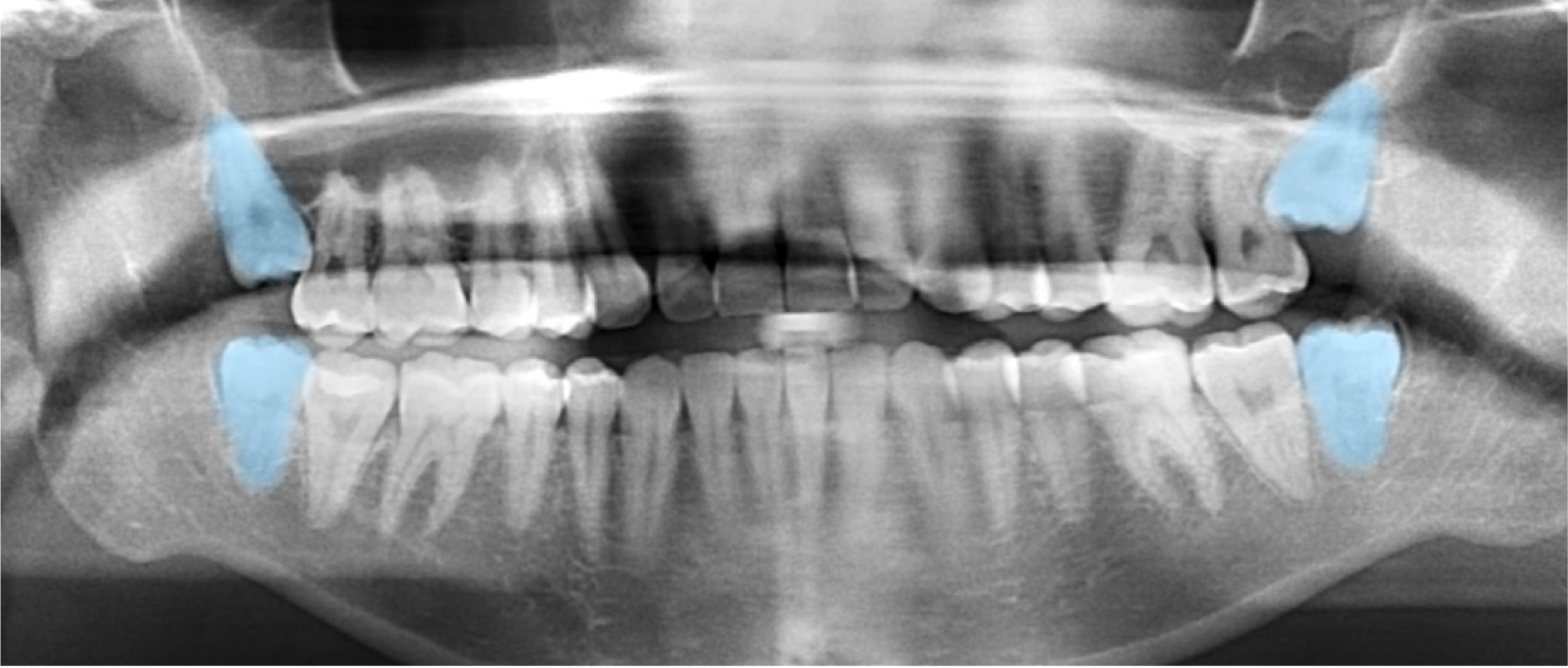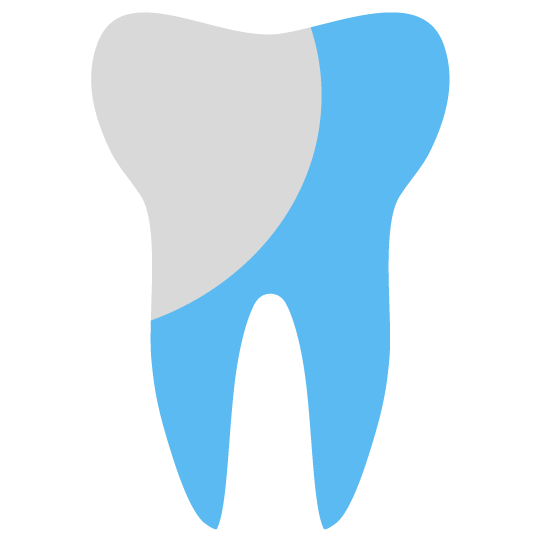About Wisdom Teeth
What are Wisdom Teeth?
Wisdom teeth are located in the back of the mouth. They typically emerge between ages 17 and 21. Nearly 85 percent of people have their wisdom teeth removed by the time they reach adulthood, because a wisdom teeth extraction can improve the overall health and wellness of the mouth by preventing a host of issues. People who decide not to have their wisdom teeth removed should schedule regular dental appointments to avoid potential wisdom teeth health issues as they get older.

Your wisdom teeth (third molars) usually start to erupt (enter your mouth) during late adolescence. Sometimes, there’s not enough room for them, and they come in partially or not at all.
Why Remove Your Wisdom Teeth?
There are many reasons why you should consider a wisdom teeth removal procedure, including:
- Infection: Wisdom teeth create hard-to-clean areas in your mouth that can lead to bacteria building up and causing infection.
- Sinus Issues: Wisdom teeth can cause sinus pressure, pain and/or congestion.
- Pain: Most people have their wisdom teeth removed because they become painful.
- Crowding: The eruption of wisdom teeth can contribute to the shifting of permanent teeth, which can undo any previous orthodontic work.
- Impaction: If wisdom teeth become impacted, they will not erupt. This means they can’t be used for chewing and may end up causing more harm than good.
- Decay: Wisdom teeth may accelerate decay in neighboring teeth.
- Periodontal Disease: Serious gum disease can develop because wisdom teeth are difficult to clean. This can lead to damage to your jawbone and spread decay to other teeth.
- Cysts/Tumors: If left untreated, issues with wisdom teeth can cause cysts or tumors to develop. These can lead to serious damage to the jawbone as well as your gums and teeth.
What to Expect When Removing Your Wisdom Teeth
Length of Procedure
The actual procedure to extract wisdom teeth typically takes between 30 and 60 minutes, although this may vary based on the degree of impaction, curvature of the roots and any infection present. You should expect to be in our office for one-and-a-half to two hours, including consultation, the procedure itself and recovery time. Before the procedure, remember to tell your doctor about any prescriptions you take.
IV Sedation
IV sedation is a popular form of wisdom teeth removal anesthesia because it puts you in a deep sleep during the procedure, during which you will feel nothing. Once you awaken, you will not remember the procedure. Omaha Oral Surgery has registered nurses on staff before, during and after the procedure to ensure that you are well taken care of throughout the entire process. If you have any questions regarding the IV sedation process, visit our IV sedation page or contact us at Omaha: 402.934.8999 or Council Bluffs: 712.309.0480 to ask one of our registered nurses, doctors, surgical assistants or supporting staff.
Avoiding Dry Sockets
- Do not touch the wound for any reason other than changing gauze.
- Do not smoke for at least 72 hours after the procedure. We recommend quitting smoking entirely.
- Don’t eat any foods that may leave behind particles — such as popcorn, peanuts, pretzels, etc. — for at least four days.
- Eat only soft foods such as mashed potatoes, ice cream and pudding.
- Avoid carbonated soft drinks.
- Notify your oral surgeon before the wisdom teeth removal of any and all prescriptions you take.
- Avoid using a straw or sucking on hard candies for one week after the procedure.
- Do not participate in sports or engage in heavy lifting for five days.
- Do not jog or play musical wind instruments for at least four days.
We're Here To Help
Whether you have questions about a wisdom teeth removal or any other procedure, we're here to help.
Give us a call at Omaha: 402.934.8999 or Council Bluffs: 712.309.0480. where our specialists are happy to help you.
Did You Know?
Symptom-free doesn’t mean disease-free! Even if your wisdom teeth aren’t causing pain, now may be a good time to remove them. Untreated wisdom teeth can cause periodontal disease, infection, pain, decay, sinus issues, impaction, crowding of existing teeth, cysts and/or tumors.




